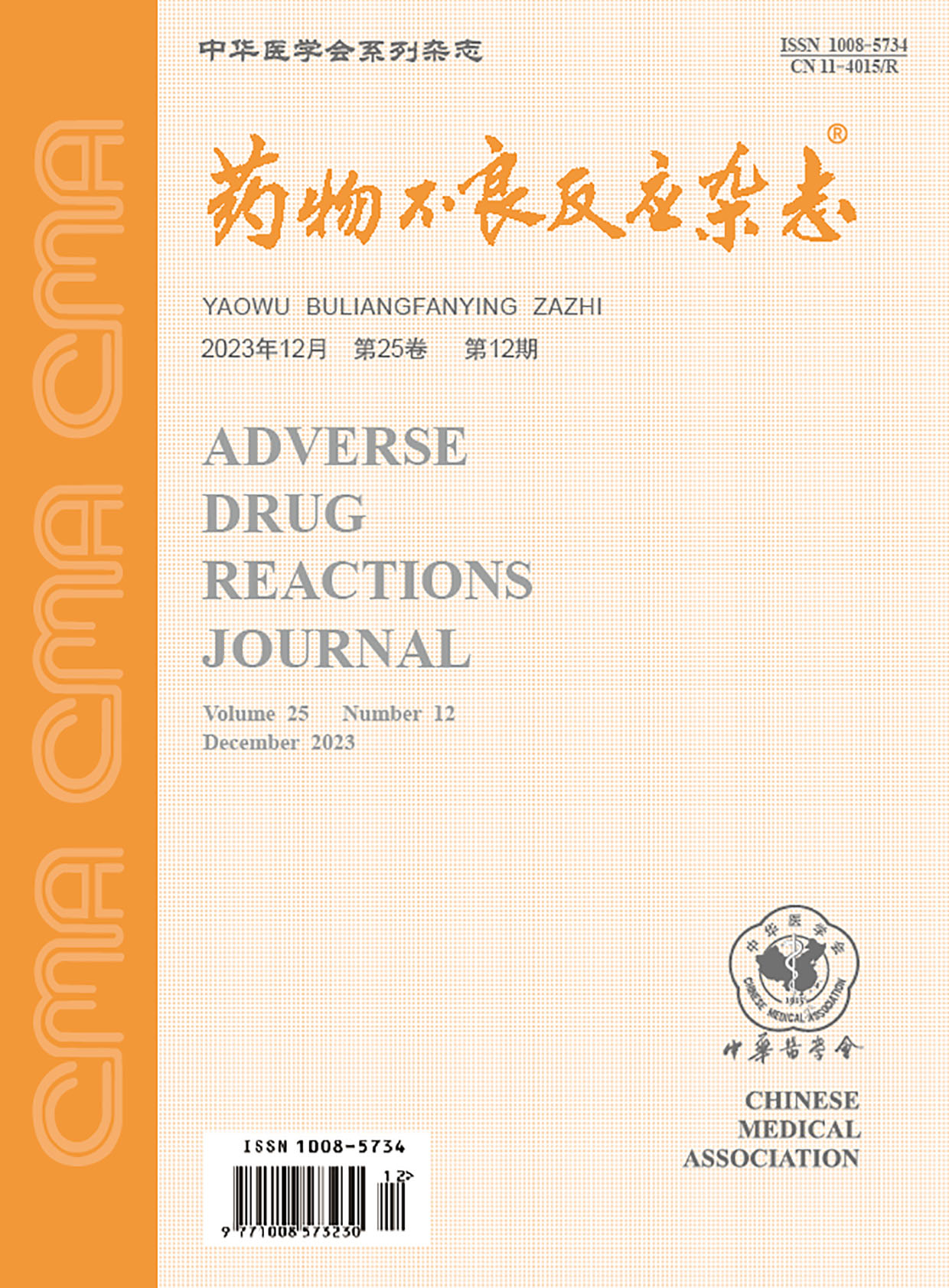Efficacy and safety of arbidol in the treatment of novel coronavirus pneumonia: a systematic review based on current and previous antiviral therapy
Yun Li, Yue-Xi Jin, Q. Ge, Fang Liu, Yinchu Cheng, Li Yang, Rongsheng Zhao
{"title":"Efficacy and safety of arbidol in the treatment of novel coronavirus pneumonia: a systematic review based on current and previous antiviral therapy","authors":"Yun Li, Yue-Xi Jin, Q. Ge, Fang Liu, Yinchu Cheng, Li Yang, Rongsheng Zhao","doi":"10.3760/CMA.J.CN114015-20200608-00646","DOIUrl":null,"url":null,"abstract":"Objective: To systematically evaluate the efficacy and safety of arbidol in the treatment of novel coronavirus pneumonia (COVID-19). Method(s): Randomized controlled trials (RCTs), cohort studies, and case-control studies on the efficacy and safety of arbidol for COVID-19, influenza, andother respiratory virus infections were collected by searching related database at home and abroad and network platform for preprint of Health Science Papers (medRxiv) (up to April 25, 2020). Quality of the enrolled studies was evaluated by bias risk assessment tool of Cochrane collaboration network and Newcastle-Ottawa Scale (NOS). Meta-analysis and descriptive analysis of relevant outcome indicators were performed using RevMan 5.3 software. Result(s): A total of 15 studies were enrolled in the study, including 7 cohort studies with high-quality and 8 RCTs, 6 of which were with low bias risk and the other 2 of which were with medium bias risk. Among these studies, 8 were on arbidol treatment for COVID-19, including 5 retrospective cohort studies, 2 prospective cohort studies, and 1 RCT, and involving 809 patients (479 patients in the arbidol group and 330 in the control group);7 were RCTs on arbidol treatment for influenza or other respiratory virus infections, involving 1 471 patients (745 patients in the arbidol group and 726 in the control group).In these studies, patients were treated with arbidol (0.15-1.2 g daily for 5-21 d) in the arbidol group while with the other antiviral agents or without any antiviral drug in the control group. Meta analysis on the efficacy and safety of arbidol in treatment for COVID-19 showed that the novel coronavirus (2019-nCoV) nucleic acid negative conversion rate in the arbidol group was significantly higher than that in the control group [71.7% (109/152) vs. 58.8% (94/160), relative risk (RR)=1.30, 95% confidence interval (CI): 1.01-1.67, P=0.04];the difference of time taken for 2019-nCoV nucleic acid negative conversion between the 2 groups was not statistically significant (standardized mean difference=-0.17, 95%CI: -0.72-0.38, P=0.55);the difference of disease improvement rate shown by chest CT on day 7 after treatment between the 2 groups was not statistically significant [46.2% (30/65) vs. 50.7% (36/71), RR=0.88, 95%CI: 0.39-1.98, P=0.76];and the difference of incidence of adverse reactions between the 2 groups was not statistically significant [16.9% (39/231) vs. 19.2% (47/245), risk difference (RD)=-0.03, 95%CI: -0.10-0.04, P=0.44]. Meta analysis on the safety of arbidol in treatment for influenza and other respiratory virus infections showed that the incidence of adverse reactions in the arbidol group was significantly lower than that in the control group [5.9% (44/745) vs. 11.3% (82/726), RR=0.52, 95%CI: 0.37-0.74, P<0.01]. Conclusion(s): Arbidol could effectively increase the 2019-nCoV nucleic acid negative conversion rate and it might be safe to treat COVID-19 using arbidol.Copyright © 2020 by the Chinese Medical Association.","PeriodicalId":7863,"journal":{"name":"药物不良反应杂志","volume":"21 1","pages":""},"PeriodicalIF":0.0000,"publicationDate":"2020-06-28","publicationTypes":"Journal Article","fieldsOfStudy":null,"isOpenAccess":false,"openAccessPdf":"","citationCount":"2","resultStr":null,"platform":"Semanticscholar","paperid":null,"PeriodicalName":"药物不良反应杂志","FirstCategoryId":"3","ListUrlMain":"https://doi.org/10.3760/CMA.J.CN114015-20200608-00646","RegionNum":0,"RegionCategory":null,"ArticlePicture":[],"TitleCN":null,"AbstractTextCN":null,"PMCID":null,"EPubDate":"","PubModel":"","JCR":"Q4","JCRName":"Medicine","Score":null,"Total":0}
引用次数: 2
Abstract
Objective: To systematically evaluate the efficacy and safety of arbidol in the treatment of novel coronavirus pneumonia (COVID-19). Method(s): Randomized controlled trials (RCTs), cohort studies, and case-control studies on the efficacy and safety of arbidol for COVID-19, influenza, andother respiratory virus infections were collected by searching related database at home and abroad and network platform for preprint of Health Science Papers (medRxiv) (up to April 25, 2020). Quality of the enrolled studies was evaluated by bias risk assessment tool of Cochrane collaboration network and Newcastle-Ottawa Scale (NOS). Meta-analysis and descriptive analysis of relevant outcome indicators were performed using RevMan 5.3 software. Result(s): A total of 15 studies were enrolled in the study, including 7 cohort studies with high-quality and 8 RCTs, 6 of which were with low bias risk and the other 2 of which were with medium bias risk. Among these studies, 8 were on arbidol treatment for COVID-19, including 5 retrospective cohort studies, 2 prospective cohort studies, and 1 RCT, and involving 809 patients (479 patients in the arbidol group and 330 in the control group);7 were RCTs on arbidol treatment for influenza or other respiratory virus infections, involving 1 471 patients (745 patients in the arbidol group and 726 in the control group).In these studies, patients were treated with arbidol (0.15-1.2 g daily for 5-21 d) in the arbidol group while with the other antiviral agents or without any antiviral drug in the control group. Meta analysis on the efficacy and safety of arbidol in treatment for COVID-19 showed that the novel coronavirus (2019-nCoV) nucleic acid negative conversion rate in the arbidol group was significantly higher than that in the control group [71.7% (109/152) vs. 58.8% (94/160), relative risk (RR)=1.30, 95% confidence interval (CI): 1.01-1.67, P=0.04];the difference of time taken for 2019-nCoV nucleic acid negative conversion between the 2 groups was not statistically significant (standardized mean difference=-0.17, 95%CI: -0.72-0.38, P=0.55);the difference of disease improvement rate shown by chest CT on day 7 after treatment between the 2 groups was not statistically significant [46.2% (30/65) vs. 50.7% (36/71), RR=0.88, 95%CI: 0.39-1.98, P=0.76];and the difference of incidence of adverse reactions between the 2 groups was not statistically significant [16.9% (39/231) vs. 19.2% (47/245), risk difference (RD)=-0.03, 95%CI: -0.10-0.04, P=0.44]. Meta analysis on the safety of arbidol in treatment for influenza and other respiratory virus infections showed that the incidence of adverse reactions in the arbidol group was significantly lower than that in the control group [5.9% (44/745) vs. 11.3% (82/726), RR=0.52, 95%CI: 0.37-0.74, P<0.01]. Conclusion(s): Arbidol could effectively increase the 2019-nCoV nucleic acid negative conversion rate and it might be safe to treat COVID-19 using arbidol.Copyright © 2020 by the Chinese Medical Association.
阿比多尔治疗新型冠状病毒肺炎的疗效和安全性:基于当前和既往抗病毒治疗的系统评价
目的:系统评价阿比多尔治疗新型冠状病毒肺炎(COVID-19)的疗效和安全性。方法:通过检索国内外相关数据库和《健康科学论文》(medRxiv)预印本网络平台(截至2020年4月25日),收集阿比多尔治疗COVID-19、流感等呼吸道病毒感染的疗效和安全性的随机对照试验(rct)、队列研究和病例对照研究。采用Cochrane协作网络偏倚风险评估工具和纽卡斯尔-渥太华量表(Newcastle-Ottawa Scale, NOS)评价入选研究的质量。采用RevMan 5.3软件对相关结局指标进行meta分析和描述性分析。结果:共纳入15项研究,包括7项高质量队列研究和8项随机对照试验,其中6项为低偏倚风险,2项为中等偏倚风险。其中阿比多尔治疗COVID-19的研究8项,包括5项回顾性队列研究、2项前瞻性队列研究和1项随机对照试验,共纳入809例患者(阿比多尔治疗组479例,对照组330例);阿比多尔治疗流感或其他呼吸道病毒感染的随机对照试验7项,共纳入1471例患者(阿比多尔治疗组745例,对照组726例)。在这些研究中,阿比多尔组患者接受阿比多尔治疗(0.15-1.2 g /天,持续5-21 d),而对照组患者使用其他抗病毒药物或不使用任何抗病毒药物。阿比多尔治疗COVID-19的疗效和安全性Meta分析显示,阿比多尔治疗组新型冠状病毒(2019-nCoV)核酸阴性转化率显著高于对照组[71.7%(109/152)比58.8%(94/160)],相对危险度(RR)=1.30, 95%可信区间(CI):两组间2019-nCoV核酸阴性转化时间差异无统计学意义(标准化平均差异=-0.17,95%CI: -0.72-0.38, P=0.55);两组间治疗后第7天胸部CT显示疾病改良率差异无统计学意义[46.2%(30/65)比50.7% (36/71),RR=0.88, 95%CI:两组患者不良反应发生率差异无统计学意义[16.9%(39/231)比19.2%(47/245),风险差异(RD)=-0.03, 95%CI: -0.10-0.04, P=0.44]。阿比多尔治疗流感及其他呼吸道病毒感染的安全性Meta分析显示,阿比多尔治疗组不良反应发生率显著低于对照组[5.9%(44/745)比11.3% (82/726),RR=0.52, 95%CI: 0.37 ~ 0.74, P<0.01]。结论:阿比多可有效提高新型冠状病毒核酸阴性转化率,阿比多治疗新型冠状病毒可能是安全的。中华医学会版权所有©2020。
本文章由计算机程序翻译,如有差异,请以英文原文为准。


